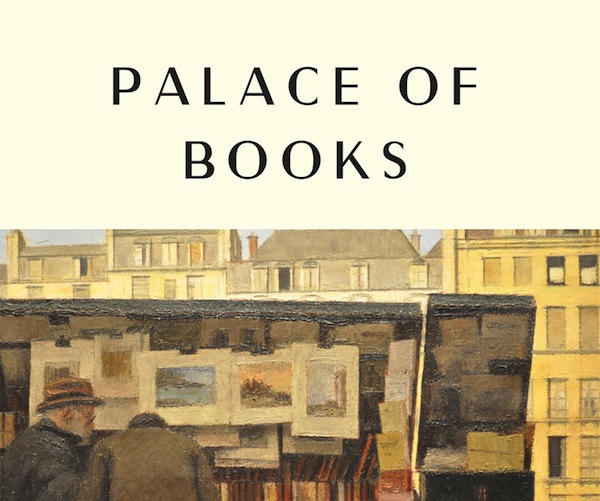Fuse Book Review: A Peek Inside the Palace of a Veteran French Wordsmith
French author Roger Grenier wears his considerable learning lightly. His writing is a graceful dance of the intellect.
Palace of Books by Roger Grenier. Translated from the French by Alice Kaplan. University of Chicago Press, 136 pages, $20.

By Michael Connor
The most astute aphorisms have a knack for commenting on events their authors may never have envisioned. The relevance of the insight endures and finds ever-fresh application.
Take a look at some of French writer Roger Grenier‘s, for instance. In his Palace of Books, written at least three years ago and just published in English via a sprightly translation from the French by Alice Kaplan, Grenier writes: “Memory itself is already a novelist.” And: “We know now that it is not a recording device, but that it is constantly recomposing the past.” And: “It is dynamic, nourished by our imagination, our personality, our passions, our wounds.” Meet Brian Williams and Bill O’Reilly, two of the great memory novelists of our time!
As is the case throughout this slight but wise and delightful book of nine essays, all of which have to do with reading, writing, and writers, Grenier, now in his mid-nineties, brings other voices into the conversation. A generous quoter, he never leaves his word as definitive. And so he adds Flaubert’s: “The mental image of things is as true as their objective reality, and what has been supplied by reality very soon ceases, for me, to be distinguishable from the embellishments and modifications I have given to it.” Of course, Grenier’s real concern is with literature, not with television news and opinion. But even out of context, his points take a current debate in an interesting direction.
Grenier, who in his salad days worked with Camus, is steeped in French literature, but he has read widely across cultures; he quotes Hemingway, Fitzgerald, Nabokov, Nietzsche, Chekhov, and Kafka as freely as he quotes Proust, Montaigne, and numerous other French writers. One of the pleasures of the book is to encounter an intellect so widely read yet grounded in a very different literary tradition. Given the provincialism of American taste, he makes a comfortable guide to many unfamiliar voices, essentially expanding the universe of literature for readers, increasing their appetite for more of some of these voices.
Indeed, Grenier’s observations can be so compact and compressed at times that they could form the departure points for much longer essays. For instance: “French writers always consider themselves to be continuers rather than creators. In other countries, such as the United States, the sense of creating dominates.” And that’s pretty much it on the topic, except that he exemplifies his point by quoting another writer, this time Valery Larbaud: “The essence of a writer’s biography is in the list of books he has read.” Grenier as continuer, not sole creator.
After a busy life in letters (including serving as a member of the Gallimard board and a Regent of the Collège de ‘Pataphysique), Grenier can be forgiven for not amplifying these arguments. The exquisitely tapered focus of this author is on the merits of writing and reading, deeply and thoughtfully. There is no waste in these pages. Grenier offers a witty and brief reflection on the relationship between faits divers, “diverse happenings,’ basically true-crime stories in newspapers, and the development of the short story. (“The public that feasts on crime needs its stories to have a beginning, a middle, and an end. Reality rarely unfolds with such pleasing logic.”) He meditates on “waiting” as a hidden but important theme in life and literature. He muses on the relationship between private lives of writers and their works.
Grenier wears his considerable learning lightly. His writing is a graceful dance of the intellect. And so it comes as a surprise when, toward the end of an essay titled “Unfinished,” he reveals some of himself in a brief (of course) but breath-stopping vignette that begins: “My sister was twenty-one years old and she was dying. She had secrets to share and so did I.” The essay’s closing question, “Which is worse? To be unfinished or to be finished?” has been thus freighted with an emotional weight that was unexpected, and poignant.
There are many surprises in the company of this nimble, humane, and learned writer.
Michael Connor was executive editor of The Post-Standard, a daily newspaper in Syracuse, NY, for twenty years, a former Nieman Fellow at Harvard and is now enrolled in the MFA writing program at Bennington College. He currently lives in Ithaca, NY.
Tagged: Alice Kaplan, french, Michael Connor, Palace of Books, Roger Grenier, translation
